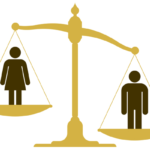The Renewable Energy Association of Nigeria (REAN) has called for better deals and involvement of Nigerian women in finding solutions to the nation’s power supply challenge through renewable energy alternatives.
The REAN President, Dr. Segun Adaju, made the call on Thursday in Abuja at the formal launch of the 44-page “REAN Women in Renewable Energy Baseline Report” organized by REAN and Heinrich Boell Stiftung.
- Nigeria, others to get Google’s $25m for women, girls
- FG to cut pollution by 20% with renewable energy
The event with the theme: “Amplifying Voices, Harnessing Strengths, Accelerating Inclusion #AHA” also features a roundtable discussion, by experts, on mentoring women on entrepreneurship and renewable energy development.
Dr. Adaju noted the deficit in energy access which negatively impact women, though women are the major consumers of energy.
“It is important for the role of women to be identified. REAN takes gender inclusion very seriously and especially how women play several roles and in which they usually excel in most of them,” he said.
On her part, the President of Women in Energy Network (WIEN), Mrs Funmi Ogbe, underscored the importance of supporting the REAN as a partner and to encourage diversity in the renewable energy network.
The CEO of REAN, Mrs. Lande Abudu, while giving a background, said the gathering was to address women inclusion in Renewable Energy.
She said that the report was commissioned to find out where the gaps are and how to fill in those gaps.
She said that the report sheds light on current statistics and what needs to be done to improve the rate of female participation and representation at all levels.
While presenting the report, Dr. Khadijat Jose-Adelaja, the consultant who worked on the study, said that the report was to determine the role of women in Nigeria’s renewable energy sector and foster increased participation of women in Nigeria’s journey to sustainable energy for all.
With the use of online surveys, interviews and secondary research, key findings from the study reveal that; the share of women in renewable energy in Nigeria is 33 percent; only 8 percent of the women in RE are in STEM roles.
“Gender gap is also existent in universities with only 10% of total enrollment being girls studying STEM courses (23% of female population); there is significant gender gap in STEM and non-STEM positions in RE companies.
“There is higher preference by women to be involved in NGO or professional services other than technical roles; major barriers faced by women include work-life balance, finding mentor-ship opportunities, getting field exposure and male dominance of the sector,” she said of the report.
The Programs Manager of Heinrich Boell Stiftung (project funding partner), Mr Ikenna Donald-Ofoegbu, later formally launch of the report.
The recommendations from the study on closing the gender gap include that women should be allowed flexible work arrangements such as working from home when not physically needed in the office; mentor-ship and training opportunities should be made available to women which will expose them to more career information, ease their inhibitions about taking on leadership roles and bridge the gap between women and the formal, more-male-dominated sector of the economy.
The report also called for the implementation of available gender policies in companies; effective monitoring and evaluation of the policies to track progress on gender inclusion; and more deliberate effort to encourage girls from primary and secondary school levels to choose STEM-related careers.

 Join Daily Trust WhatsApp Community For Quick Access To News and Happenings Around You.
Join Daily Trust WhatsApp Community For Quick Access To News and Happenings Around You.

